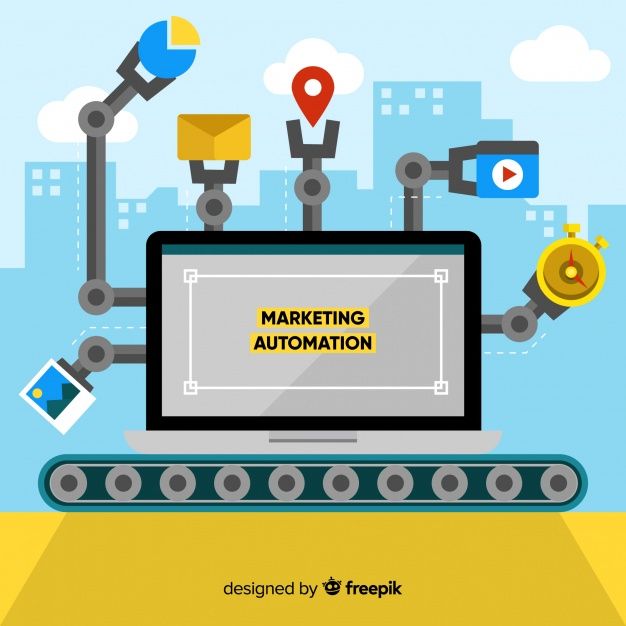
Integrating CRM with Social Media: Bridging the Gap Between Online and Offline Customer Interactions
In today’s interconnected world, customers interact with brands both online and offline, creating a complex web of touchpoints that businesses must navigate to deliver a seamless customer experience. Integrating Customer Relationship Management (CRM) systems with social media platforms is a powerful strategy to bridge this gap, enabling businesses to unify their customer interactions and insights across all channels. This article explores the benefits and best practices of integrating CRM with social media to enhance customer relationships and drive business growth.
1. Centralized Customer Data
Integrating CRM with social media consolidates customer data from multiple sources into a single, centralized system. This integration provides a holistic view of customer interactions, preferences, and behaviors across both online and offline channels. By aggregating data from social media profiles, posts, comments, and messages, businesses can enrich their CRM databases with valuable insights.
For example, when a customer interacts with your brand on social media, whether through a comment, like, or direct message, this interaction is logged in the CRM. This comprehensive customer profile enables businesses to tailor their marketing and service efforts more effectively.
2. Enhanced Customer Insights
Social media platforms are rich sources of customer insights. Integrating these platforms with CRM systems allows businesses to analyze social media interactions alongside traditional CRM data. This combined analysis can reveal deeper insights into customer sentiment, preferences, and trends.
For instance, social listening tools can monitor brand mentions and track customer sentiment on social media. By integrating these insights into the CRM, businesses can identify emerging issues, understand customer needs, and adjust their strategies proactively. This enhanced understanding of customer sentiment can inform product development, marketing campaigns, and customer service improvements.
3. Improved Customer Engagement
Integration with social media enables businesses to engage with customers more effectively and personally. CRM systems can use social media data to segment customers based on their online behavior and interests, allowing for more targeted and relevant interactions.
For example, if a customer frequently engages with your brand’s content on social media, the CRM can trigger personalized messages or offers tailored to their interests. This level of personalization enhances customer experience and fosters loyalty. Additionally, businesses can respond to customer inquiries and issues on social media promptly, ensuring a consistent and responsive service across all channels.
4. Streamlined Marketing Efforts
Integrating CRM with social media streamlines marketing efforts by enabling more cohesive and coordinated campaigns. Businesses can leverage CRM data to create targeted social media ads, track the performance of these campaigns, and adjust strategies in real-time based on customer responses.
For example, a CRM can help identify high-value customers and target them with specific social media campaigns designed to drive engagement and conversions. By tracking the success of these campaigns within the CRM, businesses can measure ROI more accurately and refine their marketing strategies for better results.
5. Unified Customer Service
Social media has become a critical channel for customer service. Integrating CRM with social media ensures that all customer service interactions, regardless of the platform, are logged and managed within a single system. This unification allows customer service teams to provide consistent and efficient support.
For instance, a customer might reach out with a complaint on Twitter and follow up with an email. With an integrated CRM system, customer service representatives can access the entire interaction history, ensuring a seamless and informed response. This unified approach reduces response times, prevents miscommunication, and enhances overall customer satisfaction.
6. Proactive Issue Resolution
Social media integration enables businesses to monitor and address potential issues before they escalate. By leveraging social listening tools, businesses can identify negative mentions or complaints in real-time and respond proactively.
For example, if a customer expresses dissatisfaction with a product on social media, the CRM can alert the customer service team to intervene quickly. This proactive approach can turn a negative experience into a positive one, demonstrating to customers that their feedback is valued and their issues are taken seriously.
7. Measurable Impact
Integrating CRM with social media provides measurable insights into the effectiveness of customer engagement strategies. Businesses can track key performance indicators (KPIs) such as customer sentiment, engagement rates, and conversion rates across both online and offline channels.
By analyzing these metrics within the CRM, businesses can understand the impact of their social media efforts on overall customer satisfaction and loyalty. This data-driven approach enables continuous improvement and helps businesses allocate resources more effectively.
Conclusion
Integrating CRM with social media bridges the gap between online and offline customer interactions, providing a unified and comprehensive view of the customer journey. This integration enhances customer insights, improves engagement, streamlines marketing efforts, unifies customer service, enables proactive issue resolution, and provides measurable impact. By leveraging the power of CRM and social media together, businesses can create more personalized, responsive, and effective customer experiences, driving growth and loyalty in today’s digital age.

